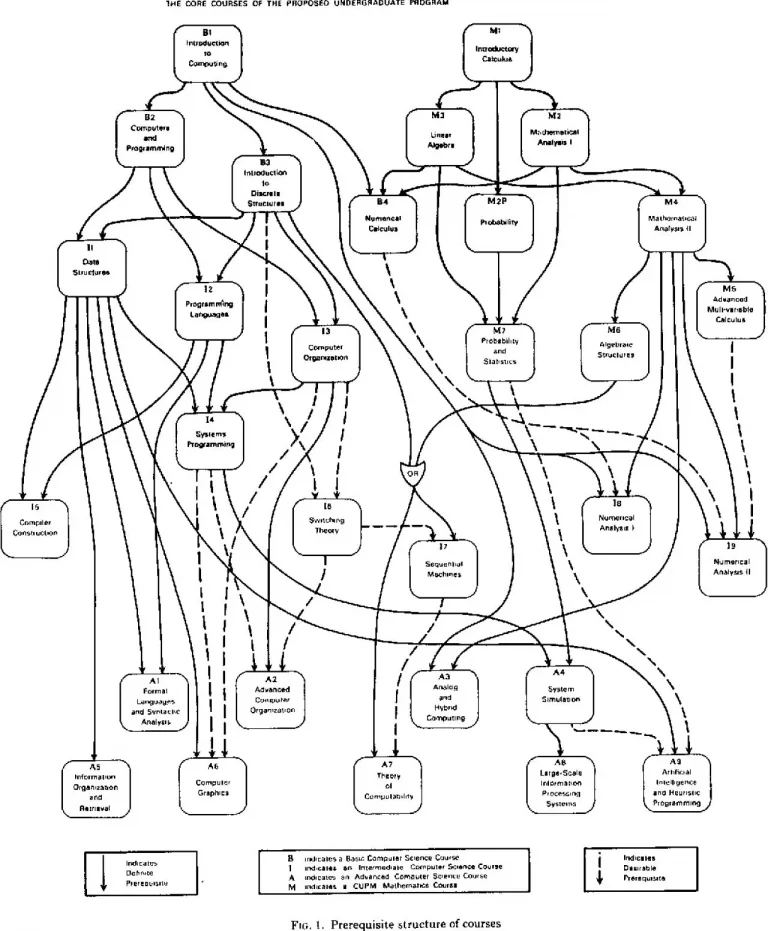Essential Science Courses To Take In High School
Science plays a pivotal role in high school education. Not only does it teach critical thinking and problem-solving skills, but it lays the foundation for pursuing STEM careers. For students interested in science, choosing the right courses is crucial.
If you’re short on time, here’s a quick answer: The main science subjects offered in high school are biology, chemistry, physics, Earth/space science, and computer science. Students should take basic courses in each discipline before specializing in advanced classes related to their interests.
In this comprehensive guide, we explore the essential science classes high schoolers should take to develop skills for college and future careers. Going over each core science subject and popular electives, we provide course descriptions, key topics covered, and benefits for real-world preparation.
Biology
Biology is a fundamental science course that provides students with a comprehensive understanding of life and living organisms. It covers a wide range of topics, from the basic building blocks of life to advanced concepts in genetics and ecology.
Taking biology in high school can lay the foundation for further studies and careers in the field of life sciences.
Basic Biology
Basic biology is the starting point for all students interested in understanding the fundamental principles of life. This course introduces students to concepts such as cell structure and function, genetics, and evolution.
Students will gain a solid understanding of how living organisms interact with their environment and the processes that drive life on Earth.
Advanced Biology
For students looking to delve deeper into the world of biology, advanced biology courses are available. These courses explore complex topics such as molecular biology, biochemistry, and microbiology. Students will have the opportunity to conduct laboratory experiments and gain hands-on experience in data analysis and scientific research methods.
Anatomy and Physiology
Anatomy and physiology courses focus on the structure and function of the human body. Students will learn about the different systems in the body, including the skeletal, muscular, and cardiovascular systems.
This course is particularly beneficial for students interested in pursuing careers in medicine, nursing, or other healthcare-related fields.
Marine Biology
Marine biology is a specialized branch of biology that focuses on the study of marine organisms and ecosystems. This course offers students the opportunity to learn about the diversity of marine life, as well as the unique challenges and adaptations of organisms in the marine environment.
Students may have the chance to participate in field trips to coastal areas or aquariums to observe marine life in its natural habitat.
For more information on biology and its various subfields, visit National Geographic’s Biology Encyclopedia.
Chemistry
Chemistry is a fundamental science course that is highly recommended for high school students. It provides a solid foundation in understanding the composition, properties, and transformations of matter.
Chemistry plays a crucial role in our everyday lives, from the food we eat to the medicines we take. It also forms the basis for other scientific disciplines such as biology and physics.
General Chemistry
The general chemistry course is typically the first chemistry class that high school students take. It covers the basic principles and concepts of chemistry, including atomic structure, chemical reactions, stoichiometry, and the periodic table.
Students will also learn about different types of chemical bonding, such as ionic and covalent bonding, as well as basic laboratory techniques and safety protocols.
AP Chemistry
Advanced Placement (AP) Chemistry is an accelerated and more in-depth version of the general chemistry course. It is designed to prepare students for college-level chemistry and is often taken by motivated and academically advanced students.
AP Chemistry covers the same topics as general chemistry but delves deeper into each concept. Students will also perform more advanced laboratory experiments and develop critical thinking and problem-solving skills.
Organic Chemistry
Organic chemistry is the study of carbon compounds, including hydrocarbons and their derivatives. It is an important branch of chemistry that focuses on the structure, properties, composition, reactions, and synthesis of organic molecules.
Organic chemistry plays a significant role in various fields, such as medicine, pharmacology, and materials science. Although organic chemistry is typically a college-level course, some high schools offer it as an advanced elective for students interested in pursuing a career in science or healthcare.
For more information on chemistry courses and resources for high school students, check out American Chemical Society’s High School Chemistry Resources.
Physics
Physics is the study of matter, energy, and the interactions between them. It is one of the most fundamental and important scientific disciplines, and studying physics in high school can provide students with a strong foundation for future studies and careers in fields such as engineering, medicine, and research.
Algebra-Based Physics
Algebra-based physics is a great starting point for high school students who are interested in learning the principles of physics. This course focuses on applying algebraic concepts to understand and solve problems related to motion, forces, and energy.
It is typically recommended for students who have completed algebra I or its equivalent.
Calculus-Based Physics
For students who are looking for a more advanced and in-depth understanding of physics, calculus-based physics is the way to go. This course incorporates calculus concepts to analyze and solve complex physics problems.
It is often recommended for students who have a strong background in mathematics, including pre-calculus or calculus.
AP Physics
The Advanced Placement (AP) Physics program offers students the opportunity to earn college credit while still in high school. The AP Physics curriculum covers both algebra-based and calculus-based physics, providing a comprehensive understanding of the subject.
It is a challenging course that requires dedication and strong problem-solving skills, but it can greatly benefit students who plan to pursue a career in a STEM field.
Astronomy
Astronomy is a branch of physics that focuses on the study of celestial objects, such as stars, planets, and galaxies. Taking an astronomy course in high school can be a fascinating and eye-opening experience.
Students will learn about the formation of the universe, the life cycles of stars, and the exploration of space. It can also provide a solid foundation for future studies in astrophysics or astronomy-related fields.
Earth Science
Earth Science is an essential course that high school students should consider taking. It is a fascinating subject that explores the various aspects of our planet. Through this course, students can gain a deeper understanding of the Earth’s structure, processes, and the interactions between different components of the Earth’s system.
Earth Science/Geology
Geology is a significant branch of Earth Science that focuses on the study of rocks, minerals, and the Earth’s solid materials. By studying geology, students can learn about the formation of mountains, earthquakes, volcanoes, and the geological history of our planet.
They can also gain insights into the Earth’s resources, such as fossil fuels and minerals, and how they are extracted and used.
Meteorology
Meteorology is another exciting subfield of Earth Science that deals with the study of weather patterns and atmospheric conditions. By taking a meteorology course, students can learn about weather forecasting, climate change, and the impact of human activities on our planet’s climate.
They can understand the science behind various weather phenomena, including hurricanes, tornadoes, and thunderstorms.
Oceanography
Oceanography is the study of the Earth’s oceans, including their physical, chemical, and biological properties. This field of Earth Science explores topics such as tides, currents, marine life, and the impact of human activities on the oceans.
By studying oceanography, students can gain a better understanding of the importance of oceans in regulating the Earth’s climate and supporting diverse ecosystems.
Environmental Science
Environmental Science is a multidisciplinary field that combines elements of biology, chemistry, and Earth Science to study the interactions between humans and the environment. By taking this course, students can learn about environmental issues such as pollution, deforestation, and climate change.
They can also explore sustainable practices and solutions to address these challenges and create a more environmentally friendly future.
Taking Earth Science courses in high school can provide students with a solid foundation in understanding our planet and the various processes that shape it. These courses not only foster scientific literacy but also inspire students to become environmentally conscious citizens who can contribute to the conservation and sustainable management of our Earth’s resources.
Computer Science
Computer Science is a rapidly growing field that plays a vital role in today’s technologically advanced world. It encompasses a wide range of topics, from programming and software development to data analysis and cybersecurity.
Taking computer science courses in high school can provide students with a strong foundation in this field and open up exciting career opportunities in the future.
Intro to Computer Science
The “Intro to Computer Science” course is designed to give students a basic understanding of computer science principles and concepts. It introduces them to the fundamentals of programming, algorithms, and problem-solving techniques.
Students will learn how to write code in popular programming languages such as Python, Java, or C++. This course is a great starting point for those who are new to computer science and want to explore the field further.
AP Computer Science Principles
The “AP Computer Science Principles” course is an advanced placement course that covers a broad range of computer science topics. It focuses on computational thinking, creativity, and the impact of computing on society.
Students will learn about the ethical considerations related to data privacy, artificial intelligence, and internet security. This course not only prepares students for the AP exam but also provides them with a deeper understanding of the societal implications of computer science.
AP Computer Science A
The “AP Computer Science A” course is designed for students who are interested in pursuing a career in computer science or a related field. It focuses on programming concepts, data structures, and algorithms.
Students will learn to design and implement computer programs using Java programming language. This course is rigorous and prepares students for the AP exam, as well as college-level computer science courses.
Taking computer science courses in high school can be highly beneficial for students. It not only introduces them to the fascinating world of computer science but also helps them develop critical thinking, problem-solving, and analytical skills.
Additionally, computer science is a field with numerous job opportunities and high earning potential. According to the Bureau of Labor Statistics, the median annual wage for computer and information technology occupations was $93,940 in May 2020, which is higher than the median wage for all occupations.
If you’re interested in learning more about computer science courses or exploring further resources in this field, you can visit websites such as code.org or collegeboard.org. These websites provide valuable information and resources for students interested in computer science.
Conclusion
High school represents a critical window for cultivating an interest and aptitude for science. By taking foundational courses across essential fields like biology, chemistry, and physics, students gain exposure to diverse STEM topics while identifying subjects they may want to pursue further.
In addition to required science credits, students should take advantage of electives aligned with their academic and career goals. Those considering a science major in college would benefit from advanced classes like AP Chemistry, Organic Chemistry, or Calculus-Based Physics.
With science skills developed in high school, students will be prepared to excel in college-level STEM classes and beyond.







